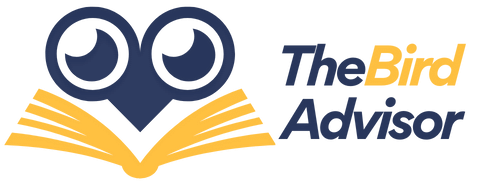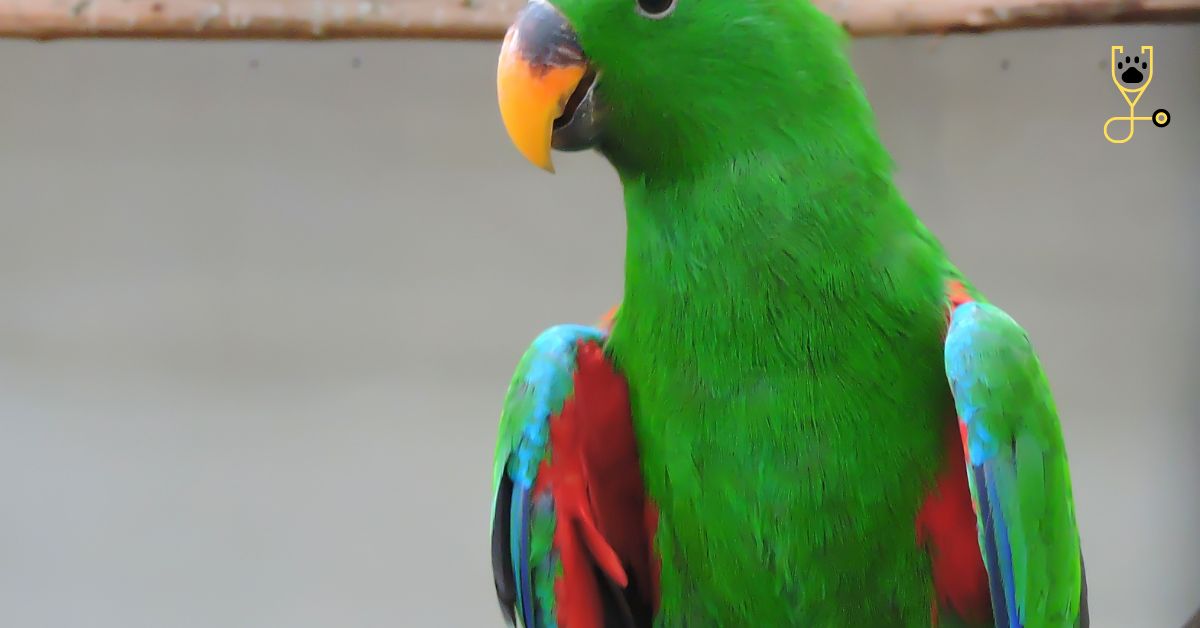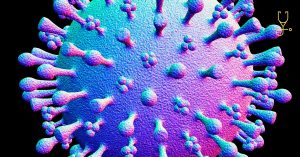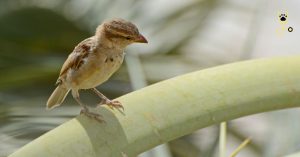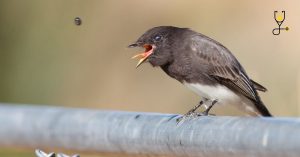Owning a pet bird is no small responsibility, but when you get to see your feathered companion flitting around their cage and interacting with you it can be worth all the effort. However, birds are very vulnerable creatures and can easily become ill or contract diseases if not looked after in the right way. In this blog post, we explore 10 of the most common illnesses encountered among pet birds and discuss how to prevent them from happening in the first place. With our help, your bird will hopefully stay healthy and lively for many years to come!

Why Is My Bird Sick?
The most common cause of sickness in pet birds is often poor diet. If your bird isn’t getting enough of the right nutrients or if their diet isn’t varied enough, it can become ill very quickly. Another major factor is stress; just like humans, birds can get stressed out and this can lead to a weakened immune system which makes them an easy target for disease. Lastly, dirty cages and water containers can also be a source of illness as it provides an ideal environment for bacteria to grow.
Let’s have a deep look into 10 of the most common diseases found among pet birds:
1. Psittacosis (Parrot Fever) Common Diseases in Pet Birds
Psittacosis is a zoonotic disease caused by the bacterium Chlamydia psittaci. It is spread through contact with infected birds, especially parrots and other poultry species. Symptoms of Psittacosis include fever, chills, headache, muscle pain, shortness of breath, and a dry cough. If left untreated, it can lead to severe pneumonia or even death in some cases. Some treatments like antibiotics can be used to treat this disease.
2. Newcastle Disease
Newcastle Disease is a viral infection that affects poultry like chickens and turkeys. It causes respiratory, nervous, and digestive system symptoms including coughing, sneezing, listlessness, green diarrhea, paralysis of the legs and wings, and even death in severe cases. Vaccines are available for the prevention of this disease but there is no cure once it has been contracted.
3. Avian Influenza (H5N1)
Avian influenza is caused by a type A virus that infects mostly birds but also humans on rare occasions. Symptoms include fever, cough, sore throat, muscle aches, and difficulty breathing. In extreme cases, it can result in severe pneumonia, organ failure, and even death. There is no cure for the disease and prevention is key to stopping its spread. Vaccines are available for certain strains of the virus but unfortunately not all.
Learn more about Avian Flu and it’s management here.
4. Avian Pox Virus
Avian pox virus is a contagious viral infection that affects birds, especially wild species like owls and hawks. Symptoms can range from mild skin lesions on the feet, beak, and legs, to more serious respiratory signs such as coughing, difficulty breathing, weight loss, and weakness. Treatment usually involves supportive care such as fluid therapy and antibiotics in more severe cases. Vaccines are available but they have limited efficacy against this virus.
5. Fowl Cholera
Fowl cholera is a bacterial infection that affects wild and domesticated birds like ducks, geese, turkeys, and chickens. Symptoms include lethargy, loss of appetite, diarrhea, and respiratory signs such as coughing and sneezing. If left untreated, it can lead to death in some cases. Treatment involves antibiotics but prevention is the best way to protect your birds from this disease. Vaccines are available for certain strains of the virus.

6. Coccidiosis
Coccidiosis is a common parasitic infection that affects poultry like chickens, turkeys, and ducks. Symptoms include bloody or watery diarrhea, weight loss, and anemia in extreme cases. Treatments involve supportive care such as fluid therapy along with anti-coccidial medications. Vaccines are available for this disease but they require regular boosters in order to maintain their efficacy.
7. Duck Viral Enteritis (DVE)
Duck viral enteritis (DVE) is a highly contagious viral infection that affects ducks, geese, and swans. Symptoms include lethargy, loss of appetite, swollen head and neck, diarrhea, and respiratory signs such as coughing and sneezing. Treatment involves supportive care with antibiotics but prevention is the best way to protect your birds from this disease. Vaccines are available but they have limited efficacy against this virus.
8. Egg Drop Syndrome
Egg drop syndrome is a viral infection that affects poultry like chickens and turkeys. It causes a decrease in egg production and leads to thin-shelled or soft-shelled eggs. Symptoms include loss of appetite, weight loss, lethargy, and reduced egg production. Treatment involves supportive care such as fluid therapy but prevention is the best way to protect your birds from this disease. Vaccines are available for certain strains of the virus but unfortunately not all.
9. Pullorum Disease
Pullorum disease is a bacterial infection that affects poultry like chickens, turkeys, and ducks. Symptoms include runny nose, watery eyes, listlessness, diarrhea, and coughing. If left untreated it can cause death in some cases. Treatment involves antibiotics but prevention is the best way to keep your flock healthy by vaccinating against this disease annually. Vaccines are available for this disease but they require regular boosters in order to remain effective.
10. Newcastle Disease
Newcastle disease is a highly contagious viral infection that affects poultry like chickens, turkeys, and ducks. Symptoms include lethargy, loss of appetite, difficulty breathing, and even death in extreme cases. Treatment involves supportive care such as fluid therapy but prevention is the best way to protect your birds from this disease. Vaccines are available for certain strains of the virus but unfortunately not all.
Conclusion
Avian diseases can have serious health implications for poultry and wild bird populations alike. In order to protect your birds, it is important to be aware of the signs and symptoms of these diseases, as well as their respective treatments. Vaccines are available for some avian diseases but they require regular boosters in order to remain effective. Prevention is always better than cure when it comes to protecting your feathered friends from disease. With proper care and monitoring, you can help ensure that your birds stay healthy and safe.
The above information provides a good overview of the most common avian diseases detected all around the world, however, more detailed information should be sought from an experienced veterinarian or avian specialist in order to provide the best care for your birds.
Always remember, prevention is the best medicine when it comes to avian disease. Vaccines and regular health checks are key components of any responsible bird owner’s routine. Your birds will thank you for taking their health seriously! If in doubt, consult an experienced veterinarian or avian specialist who can provide expert advice tailored to your specific situation.
Good luck!
Frequently Asked Questions
1. How do I know if my bird has an avian disease?
The most common signs and symptoms of an avian disease include lethargy, loss of appetite, difficulty breathing, coughing or sneezing, diarrhea, and thin-shelled or soft-shelled eggs. If you observe any of these symptoms in your bird it is important to consult a veterinarian or avian specialist as soon as possible.
2. What can I do to prevent my birds from getting sick?
The best way to protect your birds from avian diseases is by vaccinating them against the most common strains of viruses and bacteria that affect the species. It is also important to keep their enclosure clean and provide them with a balanced diet rich in nutrients. Regular health checks are also recommended as they can help detect any potential illnesses early on and provide prompt treatment.
3. Is there a cure for avian diseases?
Unfortunately, some avian diseases such as pullorum disease require antibiotics to treat the infection. Other viruses such as Newcastle disease may only respond to supportive care like fluid therapy and rest. In some cases, vaccines may be available for certain strains of virus or bacteria but it is always best to consult an experienced veterinarian or avian specialist for advice tailored to your specific situation.
4. What should I do if my bird is showing signs of an avian disease?
If you notice any signs of illness in your bird it is important to seek medical attention from an experienced veterinarian or avian specialist as soon as possible. Early detection and treatment are key to preventing the spread of disease and protecting your bird from further harm.
5. Are there any natural remedies for avian diseases?
Although some natural remedies may provide temporary relief for mild symptoms, it is important to seek professional medical advice when dealing with an avian disease. Natural remedies should never replace conventional medicine and in some cases can even be harmful to your birds if not administered correctly. Always consult an experienced veterinarian or avian specialist before attempting any natural treatments.
